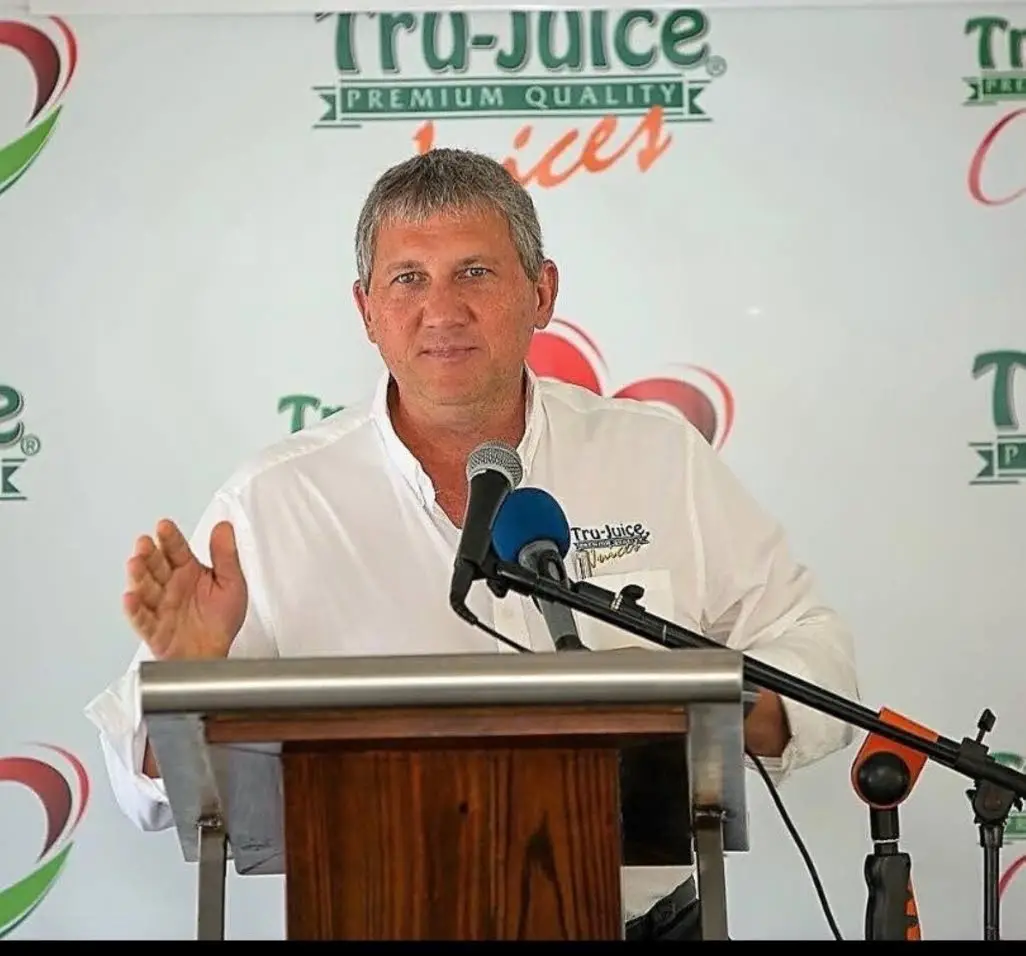
Perennial challenges continue to blight growth for citrus crops
Trade Winds Citrus remains active in the fight
Trade Winds Citrus Limited (TWCL), the largest producer of citrus crops locally, has attributed recurring challenges associated with pests, diseases, and declining acreage among major issues affecting current produce yields, mainly oranges.
Managing Director Peter McConnell said as most farmers in Jamaica and other parts of the Americas continue to suffer from fallouts caused by the citrus greening disease, this has slowly made the planting of these trees economically unproductive.
The citrus greening disease, scientifically referred to as citrus huanglongbing (HLB) is a bacterial infection that was first detected in Jamaica around 2009, affecting mainly young citrus trees. The disease, in reducing the capacity of citrus trees to produce fruit, has already wiped out a significant portion of these crops for the multi-billion-dollar industry. According to data provided by the Food and Agriculture Organisation (FAO), HLB in the last decade has destroyed approximately 100 million trees globally. Its arrival on the island followed a mass replanting of trees previously affected by the citrus tristeza Virus (CTV), adverse weather conditions and poor farm management practices.
TWCL, which has been making substantial investments to limit and control the spread of the greening disease throughout its orange grove, has over the last 15 years had to deal with reduced production in its hectare reaped.
“Current production at TWCL is 100,000 field boxes (FB) versus a peak of 650,000 in 2008. The national ratio would be similar, now averaging about 15-20 per cent of prior levels,” McConnell told the Jamaica Observer recently.
“Citrus is now a very lucrative crop, but it is no longer an option for low input farmers; successful growing of citrus requires very intense agricultural practices and significant investment. TWCL has been replanting since 2017 but with irrigation, this adds another $300,000 per acre to the already high establishment cost [estimated] at approximately $700,000/acre, which makes things more difficult for us,” McConnell stated.
The seasoned producer further said that even as farmers continue to supply the local fresh fruit demand during the traditional citrus cropping period of November to June, dramatic reductions in acreage has resulted in very limited supply of produce during the out of crop period from July to October. This imbalance in supply and demand, which he said is also now a global issue, has been trending at record levels. Locally, the reduced supply of crops such as oranges, which now trades above $1,000 per dozen on average, he said is a good example of this.
With acreage at TWCL’s own farm moving from 2,850 acres of citrus crops in 2012, its orange grove, the managing director said, now accounts for less than half of that amount, presently standing at 1,050 acres, made up of 220 trees per acre or 231,000 trees in total.
Disaggregating this acreage, McConnell said about 900 acres account for those older, disease-plagued and non-irrigated groves, while 146 acres comprise the younger irrigated fields.
“The new trees at TWCL look very good, but the rate of replanting is slow due to the high cost of establishment further compounded by the risk of pests, diseases, climate change and theft,” he however said.
As the large producer continues to invest in its own nursery for citrus plants, McConnell, who also serves as chairman of the Jamaica Citrus Protection Agency (JCPA), said he wants government to provide more support for the agency, especially as it works with citrus farmers to register all nurseries and to provide the necessary monitoring and supervision needed to ensure that only disease-free plants are produced, distributed, and planted.
He also lobbied for the State to provide additional assistance through technical support in partnership with international agencies such as the FAO and for government to offer more loans with long-term single-digit interest rates through local entities such as the Development Bank of Jamaica (DBJ).
In calling for the lifting of a restriction on farmers which currently prevents them from tapping into underground water in the Bog Walk/Linstead valley, the managing director believes it is only with greater access to irrigation that citrus planting can be increased.
“TWCL will not plant citrus or any ‘high value’ crop without irrigation. As a result of climate change, irrigation has become an essential tool for consistent and profitable production. I want to be able to irrigate every acre of arable land but can’t get permission to drill the wells. I have dug a well but the amount of water I am authorised to pump is far less than I need and far less than the capacity of the well,” he stated.
“I get the impression that the water in this valley is being reserved for residential development in Kingston and Portmore and progressive farmers left restricted,” he added.
Occupying 3,200 acres of arable land in Bog Walk, St Catherine, TWCL through its flagship Tru-Juice brand is a major supplier of freshly squeezed orange and other natural juices in the local market. In addition to its rivalled market share in that area, the company also commands a large portion of the local juice market through its other brands which includes Freshhh Juice Drinks, Squeezz Fruit Drinks, Wakefield Juices and Calico Jack Rum Punch.
In addition to oranges and limes produced under citrus crops, the company cultivates pineapples and sugar cane and undertakes dairy production through its cattle farm operation.























